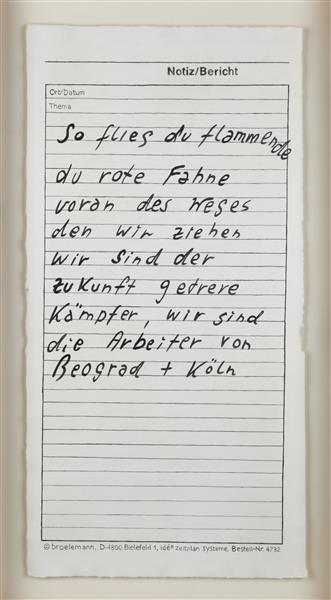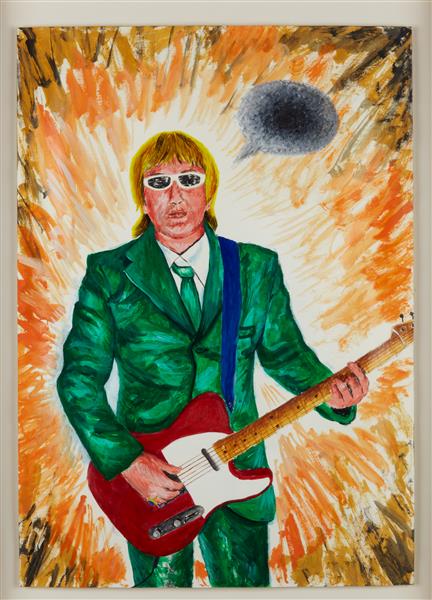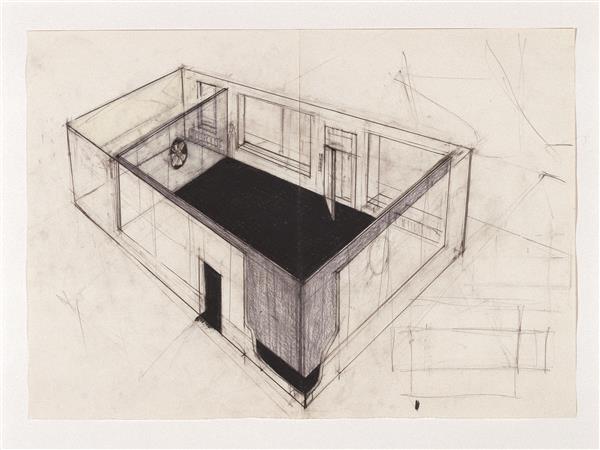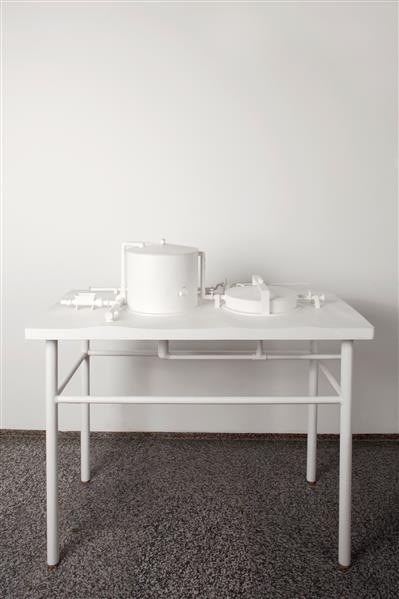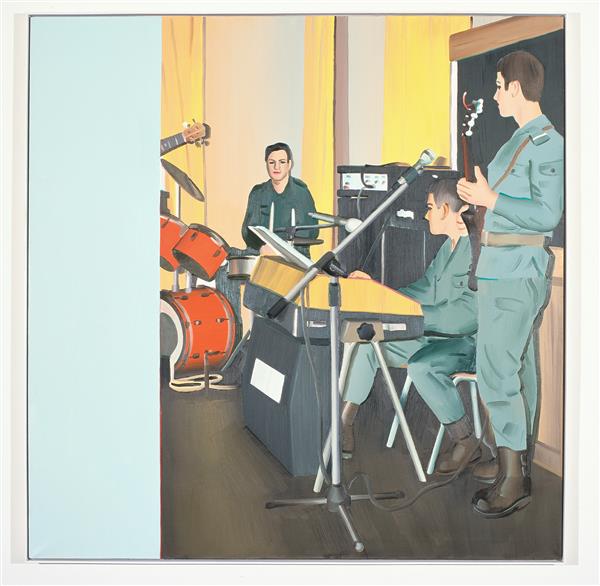Oh ... Kippenberger? ... He's a Poet. From the series “Return of the dead painter with new problems”
Uroš Djurić
acrylic on paper
94 × 53 cm (framed)
2007
Acquisition 2009
Inv. No. 0196
When Uroš Djurić gets into a taxi in Belgrade, he is greeted like a pop star. After all, the retired punk enjoys a glamorous image whose fascination reaches far beyond the alternative art scene of the Serbian capital.
In 1994, the movie actor, publisher of underground comics, graphic artist, DJ in the club “The Hole,” and designer of pertinent radio shows for the Belgrade network B92 published the Manifesto of Autonomism together with Stevan Markuš, thus establishing the “personal principle” as the chief motivation for the production of art at the fringe of a society in which bankers, politicians, lawbreakers, and war criminals were considered heroes. “The most important criteria for entering their club,” Djurić recounts, “was to join them in their game.” He developed The Populist Project, pointing out the interaction between the individual and the star system by presenting himself on the cover of an imaginary magazine entitled Hometown Boys as a player of the most prominent European soccer clubs and as a pioneer with a red neckerchief amidst the most famous protagonists of the Eastern European art scene.
When Uroš Djurić paints, he does so in the reassuring awareness of being a conceptual artist. Self-portraits with a guitar are an obvious theme for him, since he is the proud owner of the most expensive Fender Telecaster, featuring a natural wooden body and a rosewood neck – a classic among electric guitars. The present painting’s title alone – a well-meant piece of advice from Germany as the country of the economic miracle – already suggests that Djurić samples styles and contexts and cherishes the irony-clad genre of a true intellectual whose success derives from his – occasionally traumatic – affiliation with a minority on the one hand and his belonging to an elite on the other.
It is thus not surprising that Djurić was getting along well with Germany’s legendary enfant terrible Martin Kippenberger. In appropriating Kippi’s genre of drawing on hotel stationary, he underscores his admiration by expanding the format. The text quotes an icon from the international antifascist song repertory. In the personal branding conceived by Kippenberger/Djurić, the last line, which in the original is “we are the workers of Vienna,” has logically been changed to “we are the workers of Belgrade + Cologne.”
Brigitte Huck, 2011 (translation: Wolfgang Astelbauer)
Literature: Experimenta Folklore, ed. by the Frankfurter Kunstverein, Frankfurt am Main 2008, 37.
Continue readingExhibitions
Wallpaper #5, evn sammlung, Maria Enzersdorf, 2022
Wallpaper #1, evn sammlung, Maria Enzersdorf, 2018
evn collection / institutional presentation, Viennafair, Vienna, 2011
Publications
evn collection. 2006–2011, Cologne 2011, p. 112–115
Martin Kippenberger. Crteži, Belgrade 1989
